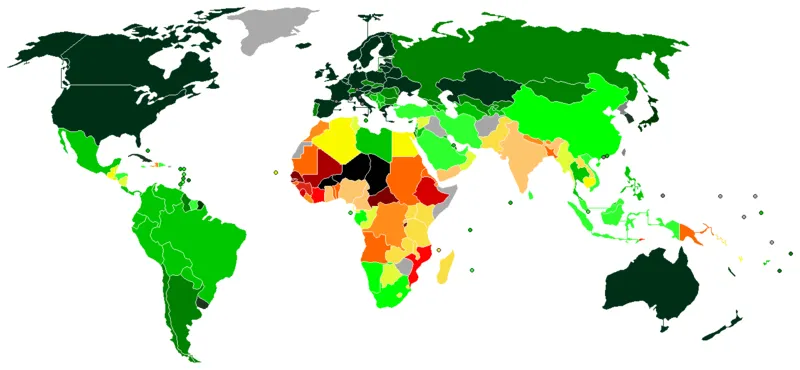Many countries' education systems are mediocre, with pedagogical and educational issues, particularly in developing countries. After a brief stint as a middle-school teacher (7 years) in Algeria, I realised that the education system deteriorates year after year, with difficulties compounding over time.
Education problems:
There are many problems facing the education sector in my country, and in Arab countries or developing countries in general. Let's start with the curriculum-related issues. Here, foreign curricula—particularly French curricula—have been printed, translated, and encouraged to be used. This is completely unreasonable. There are differences in the working environment, the calibre of the accessible teaching resources, and the instructional strategy. For instance, a curriculum is used that heavily relies on the student. While the pupils learn the lesson's outcome, the instructor serves as a guide and an observer and simply imparts the fundamentals. Even in this case, the topic is thought to be good and superior to the approach of indoctrination and lectures, but can a teacher effectively educate 47 pupils (the case in the school where I work) in a tiny classroom?. Furthermore, education in these nations is separated from reality and job markets, since educators move immediately from the university to the classroom to teach, and teacher formation and training begin concurrently with their profession. This is equally ridiculous in my opinion. I recall finishing my undergraduate studies in the field of Chemistry, passing a test to recruit teachers, and then receiving a phone saying that I should start working the next week, whereas our teacher training begins after a month. Among the issues are traditional teaching techniques that rely on indoctrination and make students reliant on memory, low teacher wages, centralization of decision-making and neutralisation of teacher freedom, and inefficient evaluation methods.
Possible solutions:
In light of these problems, many countries seek to apply new teaching methods and gradually get rid of traditional methods. The Steam strategy is one of these methods.
What is STEAM Education?
In 2001, the STEM (Science- Technology- Engineering- Mathematics) approach made its debut in the United States of America with the intention of addressing the issue of pupils' deficiencies in science and mathematics. Furthermore, for the goal of connecting education to daily life, concepts and skills in fields of study are presented in the form of issues or projects that the learner may experience in his daily life. The four instructional materials are presented as one big interconnected entity. Where the teacher must collaborate with other teachers in various disciplines throughout implementation and preparation in order for academic activities to be integrated.
The letter A was added to the word Stem, to become Steam, the letter A here represents the social sciences, humanities, and arts, therefore the numerous sciences are interwoven and this philosophy is not restricted to scientific issues exclusively.
What do you know about teaching methods and what do you think of Steam philosophy? Please share your opinion in the comments. Thank you for reading and I wish you a good day.
